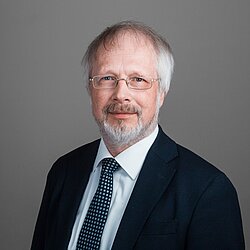Bachelor's study programme "Theology and Religious Studies"
Programme level: Bachelor's Degree Programme
Language of instruction: Latvian
Study form and duration: full-time - 6 semesters
Credits: 180 ECTS
Obtainable degree or qualification: Bachelor of Humanities in Theology and Science of Religions
Number of study places for admission in 2025/2026: State-funded study places - 25, study places for tuition fee - 10
Tuition fee per year (ac. year 2025/26): 2600 EUR for EU/EEA/Swiss citizens, EU Long-term resident permit holders and their family members. 3900 EUR for citizens of other countries
Study location: Riga, city centre
The bachelor's study program in Theology and Religious Studies offers a high-level humanities education related to religious studies nowadays and in a historical context. Religious studies offer its students the opportunity to expand their knowledge about the sacred texts, practices, beliefs, history of world religions and study the phenomenology of religion, sociology of religion, anthropology of religion, etc. In theological studies, students become more familiar with the Christian faith and practice (New and Old Testament texts and their interpretations, history of religious ideas and institutions, Christian practice - worship, spiritual care, church pedagogy).
Study Programme Director

Professor Ralfs Kokins
New and Old Testament theology, ancient Greek (koine) and Hebrew languages, various theological traditions, the most important ideas of well-known theologians, methods of religious studies, world religions and new religious movements, philosophy of religion, ethics, and psychology, and much more.
In fields related to religious research and analysis of current developments or processes (universities, institutes, media), administration (state and municipal institutions, religious organizations and non-governmental organizations) and practice (churches and other religious organizations - in the fields of spiritual care, support, and growth), as well as religious education and providing general services (for example, medical support for personal health care, mental health and social care providers, etc.).
You can find out about the admission requirements for the study program by switching to the Latvian version of the website.
UL full-time students, regardless of their citizenship, have the opportunity to apply for the ERASMUS + exchange program for studies or/and traineeship.
More information:
Programme assistant:
Nelda Kikjauka
- Phone: +371 67034748
- E-mail: nelda.kikjauka@lu.lv
- Address: Visvalža iela 4a, Room 336
Department e-mail: teoldept@lu.lv

 CONFERENCE
CONFERENCE